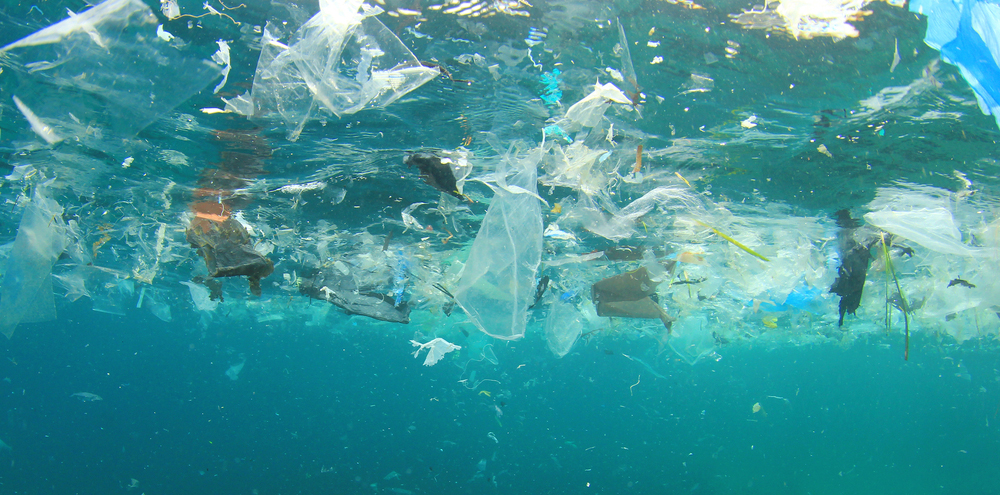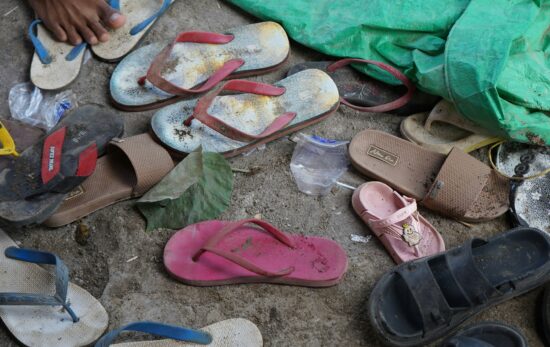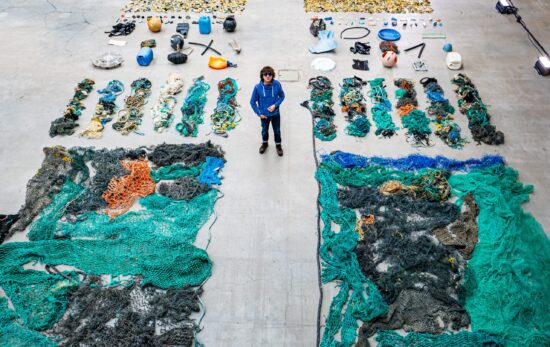Plastic. A magical invention? Or the ultimate polluter of all time?
Believe it or not, plastics were actually invented in the 19th century as a semi-conservation measure. Yep, you read that right.
Plastics were first invented as a response to public concern around elephants facing extinction. At the time, ivory was a popular material for products used in all areas of life, allowing the production of clocks, dressing tables, billiard balls, hair combs, piano keys and more.
To protect wildlife, an alternative was invented: Plastic. By the 1950’s, it was on our shelves: cheap, durable and convenient.
Fast forward to 2020 and life as we know it is literally built on plastic.
And this magical invention born of great intentions came along with some seriously concerning consequences. By now, you’ll have heard the horror stories.
The Great Pacific Garbage Patch. Dead seabirds with stomachs full of plastic. Microplastics in the food chain.
Never heard of those things before? Still not sure what all the fuss is about?
Check out this video and you’ll be up to speed in no time…
There is no doubt that plastic has permeated all areas of our lives, and it’s out of control.
But despite the complex nature of plastic pollution, there is still a lot that we as individuals – and more specifically, divers – can do.
With that in mind, keep reading for our top 10 tips on kicking the plastic habit, for good.
1. Cultivate Your Awareness
Take a moment to reflect and realise that there is no such thing as disposable plastic, and there never was. Every single piece of plastic you ever touched (and that everyone else – dead or alive – ever touched, anywhere on the planet) is still out there, sitting in landfill or floating around in the ocean. Let that sink in.
Next time someone offers you ‘disposable’ plastic, you can laugh at the concept and politely reject their offer.
2. Prepare Yourself
But how will I drink my coffee? Carry my veggies home? Drink from a straw? Eat a sandwich when I’m on the go? {insert any routine activity that currently relies on plastic here}
Invest in some quality, re-usable items that will mean you’ll have the tools you need to look after yourself, without ever feeling pressured into accepting plastic convenience items again. That means a re-usable coffee cup, water bottle, grocery bag, cutlery set, straw and food containers – all within your backpack.
When you’ve got these alternatives with you, there’s no question what you’d rather use. Just remember, the whole point is to reduce waste, so dont go buying the coolest new plastic-free alternative every time it’s available, if you already have something that is perfectly functional in the cupboard.
Repeat after me: Refuse. Reduce. Reuse. Recycle.
3. Reject the Packaging (leave it in the store)
Some items just don’t need the packaging they come in. For proof, you need look no further than pre-peeled tangerines in a plastic tub. Come on, seriously? Beyond that extreme example (which is no longer available, thankfully), there are numerous other products with heaps of plastic packaging. It’s truly insane, but it’s what we are used to so we carry on as usual.
Stop. It’s time to make a change.
Opt for produce without unnecessary packaging (farmers markets and food box delivery schemes are awesome for this) and if you want something that comes with ridiculous packaging, then buy it, but leave the packaging at the store. If we all begin to do this, retailers will be forced to deal with the waste they are forcing on us, and we will start to see changes.
4. Feast at Home!
Takeaway food containers are some of the most commonly found plastic items in the ocean. Turn the tide on this wave of plastic by cooking at home more often than you do currently.
No one is asking you to give up the good taste: sometimes, a delicious Chinese or pizza is what the heart craves. Get familiarised with the concept of a “fakeaway” and your taste buds will be on fire in no time!
If delivery is your only option, think twice about throwing away the containers. They can be re-used for food storage at home or as a container for your lunch. And while you’re at it, say goodbye to plastic wrap and zip-lock bags. With your re-usable containers and food wraps, you won’t need them anyway.
5. Buy in Bulk
Some things come in plastic containers and there’s no alternative (for now, anyway). To cut down on waste, buy these items in bulk. Not only is the ratio of product to plastic a lot more favourable, but it saves you the hassle of having to keep buying again every time you run out.
A great place to start with this is shampoo, conditioner and concentrated washing up liquid. If you don’t have space at home, check your local area for zero waste stores and pop in for refills as and when you need them.
6. Overhaul Your Bathroom
Once you start looking out for disposable plastics, you’ll notice a lot of them have made themselves at home in your bathroom. Luckily, the market has noticed too and there are now numerous alternatives on offer.
- Plastic tampons? Try a menstrual cup or biodegradable tampons.
- Disposable razors? Try a metal razor with a blade subscription service.
- Throwaway toothbrush and toothpaste? Try toothpaste tablets and a bamboo brush.
- Loo roll manufactured from freshly-cut trees? Try recycled paper that builds toilets.
- Deoderant in a plastic container? Try no-waste refillable deodorant.
- Baby diapers? Try re-usable cloth diapers.
Face wipes, cotton buds and plastic sachets of who knows what cleansing product: these can all go. Soap and a face cloth anyone?
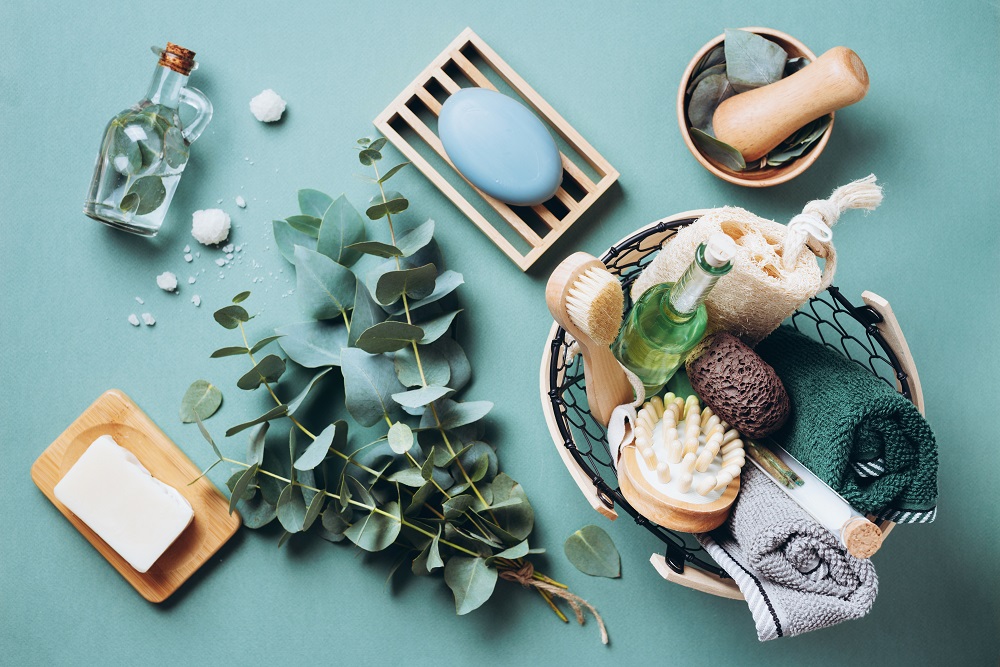
7. Wash Wisely
You may or may not know by now that the majority of our clothes contain plastic materials. Taking steps to reduce the amount of microplastics we wash into the water system (and eventually the ocean and our food chain) is something we should all be thinking about. There’s a few ways you can do this…
- Reduce the amount of plastic in your clothes in the first place. Opt for natural materials, or go retro: back to the days before polyester and nylon!
- Wash your clothes less. Jeans actually survive longer out of the wash, and depending on where you are and what your laundry load looks like, you may be able to skip a few washes.
- Adjust your wash to mitigate the release of microplastics. Wash your clothes on a cooler temperature, and throw in a washing ball or bag to catch those sneaky microfibers.
8. Celebrate In Style
Christmas, birthdays, weddings and other cultural holidays often go hand in hand with disposable junk. Whether it’s wrapping paper, silly little gifts, balloons or novelty straws, think twice before you buy. Remember the centuries long lifespan of these products and weigh up the pros and cons.
Rather than buy fresh, could you go second-hand or borrow any of the above from your friends or family?
There’s some beautiful biodegradable wrapping paper out there now, and old newspapers will do the trick too. Do you really need the big plastic bow? Why not tie a ribbon instead, then keep the ribbon for another time? Instead of cheap novelty gifts, consider gifting home-made coupons, edible treats or even an experience.
Alternatively, why not gift items made from recovered ocean plastic? Anyone for recycled ocean-themed swimwear?
9. Organise a Clean Up
Taking action on plastic is not just about reducing your waste, it’s also about retrieving that which has already entered the ocean. As divers, we have a unique skill set that allows us to be part of the solution, alongside other promising endeavours.
Get your community together and organise a beach or underwater clean up, then log what you find so your data can be used to drive meaningful policy change. The more we can evidence our findings, the more pressure we can put on manufacturers to account for the full life cycle of their products.
10. Use Your Voice!
When an organisation or local store is taking steps to reduce their plastic usage, applaud them for it. Support them by buying their products, email them to say well done, share them on social media and tell your friends about them!
On the other hand, if a company has a product you love that comes wrapped in unnecessary plastic, get in touch with them and let them know. Politely explain that as their customer, you would like to continue purchasing from them but their unsustainable use of disposable plastic packaging is putting you off.
When setting off on vacation, enquire ahead of time about the resort’s plastic use, and look out for Green Fins dive centers. When it comes to plastic-free travel, being informed of your choices and acting accordingly is one of the most important things you can do.
Equally, it’s also important to get in touch with your political representative to ask them what they are doing to tackle the plastic crisis. Together, we have a lot of power, and over time, decision makers will hear our collective voice.


